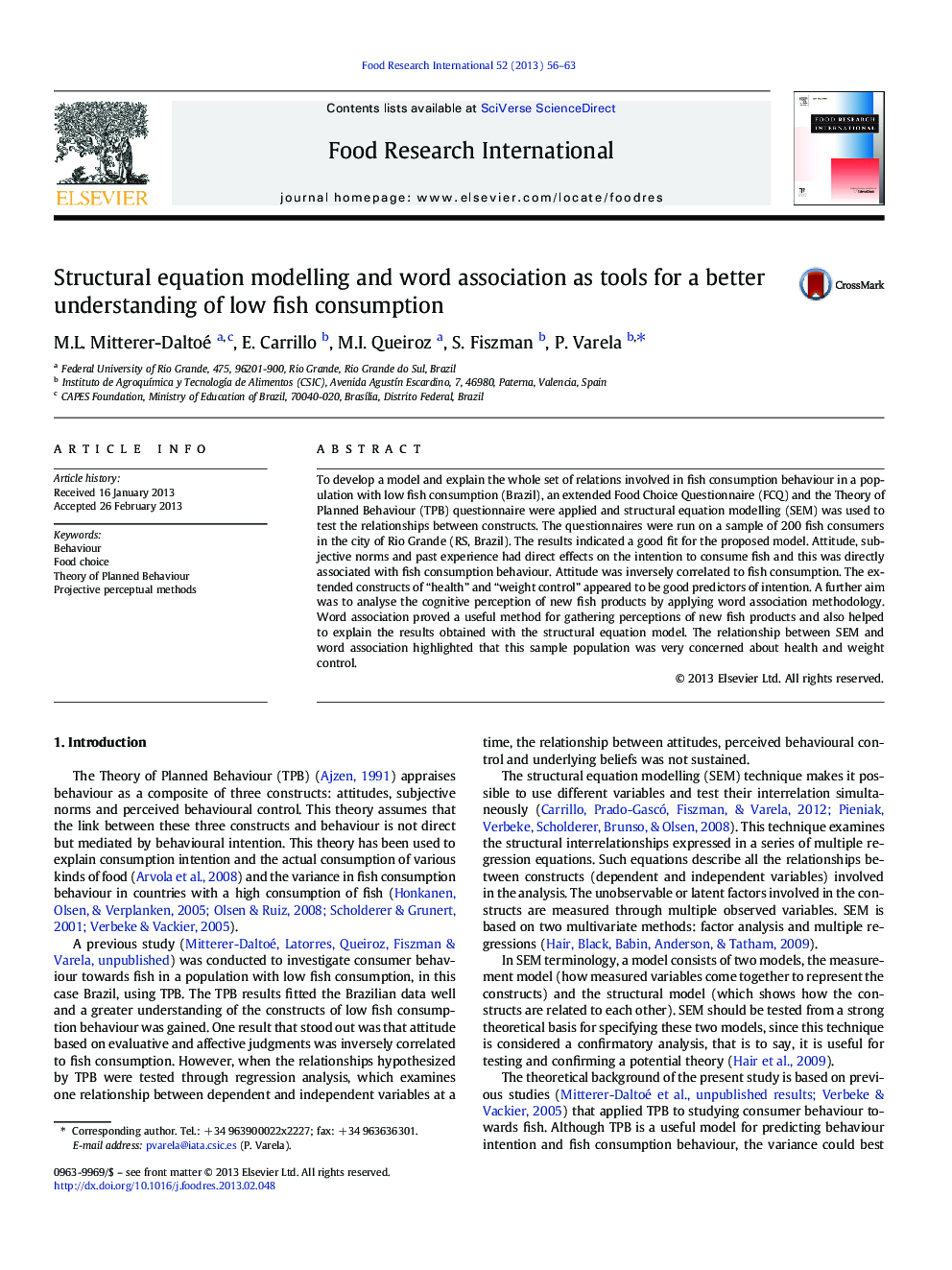| Article ID | Journal | Published Year | Pages | File Type |
|---|---|---|---|---|
| 6398182 | Food Research International | 2013 | 8 Pages |
â¢SEM and word association helped in understanding the perception of fish products.â¢Attitude was inversely correlated to fish consumption.â¢Health and weight control were good predictors of intention to eat fish.
To develop a model and explain the whole set of relations involved in fish consumption behaviour in a population with low fish consumption (Brazil), an extended Food Choice Questionnaire (FCQ) and the Theory of Planned Behaviour (TPB) questionnaire were applied and structural equation modelling (SEM) was used to test the relationships between constructs. The questionnaires were run on a sample of 200 fish consumers in the city of Rio Grande (RS, Brazil). The results indicated a good fit for the proposed model. Attitude, subjective norms and past experience had direct effects on the intention to consume fish and this was directly associated with fish consumption behaviour. Attitude was inversely correlated to fish consumption. The extended constructs of “health” and “weight control” appeared to be good predictors of intention. A further aim was to analyse the cognitive perception of new fish products by applying word association methodology. Word association proved a useful method for gathering perceptions of new fish products and also helped to explain the results obtained with the structural equation model. The relationship between SEM and word association highlighted that this sample population was very concerned about health and weight control.
